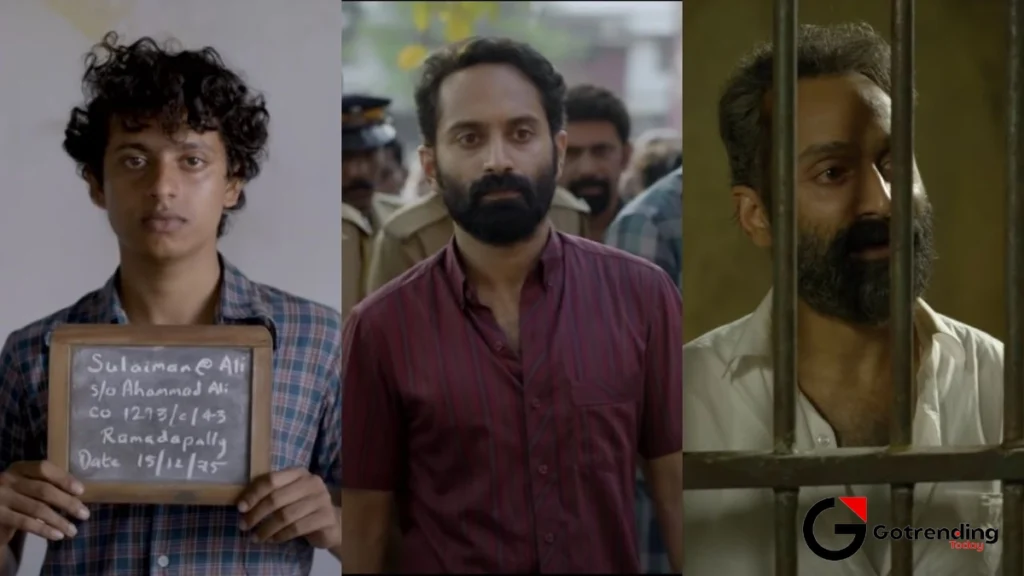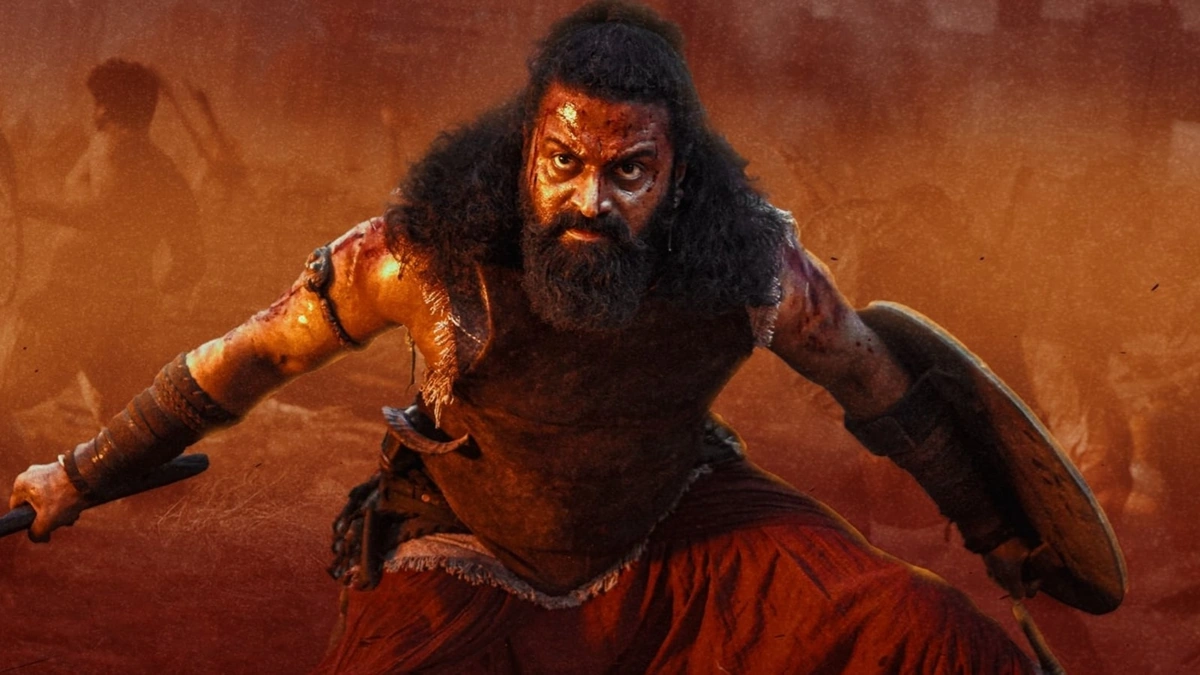Maalik | The Uncomfortable, Unforgettable Epic You Can’t Look Away From
Some movies you just watch. They entertain you for a couple of hours, you grab dinner after, and by the next morning, they’ve dissolved into the background noise of your life. And then there are movies like Maalik. This isn’t a film you simply watch; it’s one you endure, you grapple with, and that sits in the pit of your stomach for days afterward. I walked away from it feeling… heavy. Exhausted, even. But in that uniquely satisfying way that only truly ambitious cinema can make you feel.
Let’s get one thing straight right away. This isn’t just another gangster saga. If you’re walking in expecting a straightforward rise-and-fall story, you’re in for a shock. Director Mahesh Narayanan has crafted something far more complex, a sprawling, generation-spanning political statement disguised as a crime drama. And honestly? It’s one of the most vital pieces of Malayalam cinema in recent memory.
It’s messy. It’s sprawling. And it’s absolutely essential.
More Than Just a Gangster Flick | The Political Heart of Maalik
The film orbits around Ali Ikka, or Sulaiman Malik, played by the ever-transcendent Fahadh Faasil. We see him across decades, from a young man smuggling goods on the shores of Ramadappally a fictional coastal town in Kerala to a powerful, aging patriarch who commands the absolute loyalty of his community. The “Maalik” (which means ‘king’ or ‘master’) of his domain. But his kingdom is built on a precarious foundation.
Here’s the thing that sets this movie apart. The real antagonist isn’t a rival gang or a formidable cop, though those elements are certainly present. The true villain is systemic. It’s the insidious way politics, religion, and law enforcement can be manipulated to divide a community that once lived in harmony. The film is a thinly veiled, searing indictment of the real-life 2009 Beemapally police firing, an event that remains a deep scar on the region’s history. Find out more about the latest in the world of entertainment.
Mahesh Narayanan doesn’t pull any punches. He shows how promises of development and land become tools of dispossession, how “us vs. them” narratives are manufactured by those in power for their own gain. It’s uncomfortable to watch because it feels so chillingly real. It’s not just a story about Ramadappally; it’s a story that could be about anywhere in India where communal lines are drawn in the sand by forces far away from the people whose lives are destroyed.
Fahadh Faasil’s Sulaiman | A King Without a Crown

I mean, what is there left to say about Fahadh Faasil? The man is a national treasure. His transformation from a wiry, restless youth to a stoic, weary godfather is nothing short of breathtaking. It’s not just the impressive aging makeup; it’s in his eyes. In the first half, they are fiery, calculating, and full of ambition. In the latter half, they carry the crushing weight of every decision, every loss, and every betrayal.
Sulaiman isn’t a hero. He’s a product of his circumstances a protector who uses crime to build a community apathetic authorities have abandoned. He builds them homes, schools, and a mosque. But in doing so, he also creates a system that requires his constant, often violent, control. The maalik movie review circuit has rightly praised this nuanced portrayal. He is both savior and sinner, and Fahadh makes you believe in every single contradiction of the man.
And let’s not forget the powerhouse performance by Nimisha Sajayan as Roseline, Sulaiman’s wife. She is the moral compass and, in many ways, the tragic heart of the film. Her journey from a fierce, loving partner to a woman broken by grief and manipulated by the state is utterly devastating. Her performance is the perfect counterpoint to Fahadh’s simmering intensity.
The Weight of History and a Fractured Timeline

The narrative structure is, to put it mildly, ambitious. The film opens with a jaw-dropping 12-minute single take that navigates through Sulaiman’s sprawling home during a celebration. It’s a technical marvel, yes, but it’s also brilliant storytelling. It establishes the geography, the characters, and the complex community dynamics all in one fluid motion. It’s a statement of intent from Mahesh Narayanan.
From there, the story jumps back and forth in time, piecing together the events that led Sulaiman from a small-time smuggler to a revered, and feared, leader. It can be a little disorienting at first. You have to pay attention. But this non-linear approach is crucial because it mirrors the nature of memory and history itself—fragmented, subjective, and often re-written by those who hold power. The film asks: whose version of the story do we believe? Sulaiman’s? The police’s? His estranged mother’s?
Actually, that’s the central question of the film. There is no single, objective truth, only perspectives shaped by personal gain, trauma, and loyalty. If you are a fan of in-depth analysis on popular trends, check out the latest news updates.
Where Maalik Soars

Look, is the film perfect? No. At nearly three hours, the runtime is felt, particularly in the middle third where the political exposition can feel a little heavy-handed. Some of the dialogue lays the themes on a bit thick, when the visuals and performances are already doing the heavy lifting. I found myself wishing the film would trust its audience just a little bit more in those moments.
But that’s a minor quibble in the face of its monumental achievements. The production design is incredible, flawlessly recreating a coastal town across multiple decades. The cinematography is gritty and evocative, making the sea and the land characters in their own right. And the score by Sushin Shyam is a haunting character in itself, swelling from melancholic notes to thunderous, percussive beats that drive the film’s tension.
When Maalik soars, it’s a cinematic experience that rivals some of the greatest crime epics. It’s a powerful, gut-wrenching political thriller that is less concerned with providing answers and more interested in asking the right, uncomfortable questions. It’s a film that demands your attention and rewards it with a story that will stick with you, whether you want it to or not.
Frequently Asked Questions
Is Maalik based on a real story?
Yes, in a way. While the characters and the town of Ramadappally are fictional, the film is heavily inspired by the real-life 2009 Beemapally police firing in Kerala, where a dispute between two communities was met with a police response that resulted in multiple deaths. The film uses this event as a backdrop to explore themes of communal politics and state-sponsored injustice.
Do I need to know the political background to understand the movie?
Not at all. While knowing the context of the Beemapally incident adds another layer of depth, director Mahesh Narayanan does an excellent job of making the story universal. The core themes of community, power, betrayal, and how politicians can exploit social divisions are understandable to anyone, regardless of their familiarity with Kerala’s specific political history.
What’s so special about Fahadh Faasil’s performance in the film?
It’s all about the transformation. He plays the character of Sulaiman Malik across a span of about 30 years, and he makes it completely believable without over-the-top theatrics. It’s the subtle shifts in his body language, his gaze, and his voice that sell the performance. He captures the fire of a young revolutionary and the immense weariness of an old leader who has seen too much. It’s a masterclass in subtlety.
Is the general Maalik movie review consensus positive?
Overwhelmingly, yes. Most critics and audiences have hailed it as a landmark film for Malayalam cinema. As noted by many outlets, including the Hindustan Times entertainment section, praise is almost universally directed at its ambitious scale, powerful performances (especially from Fahadh Faasil and Nimisha Sajayan), and brave political commentary. The main points of criticism usually revolve around its long runtime and occasionally direct dialogue.













